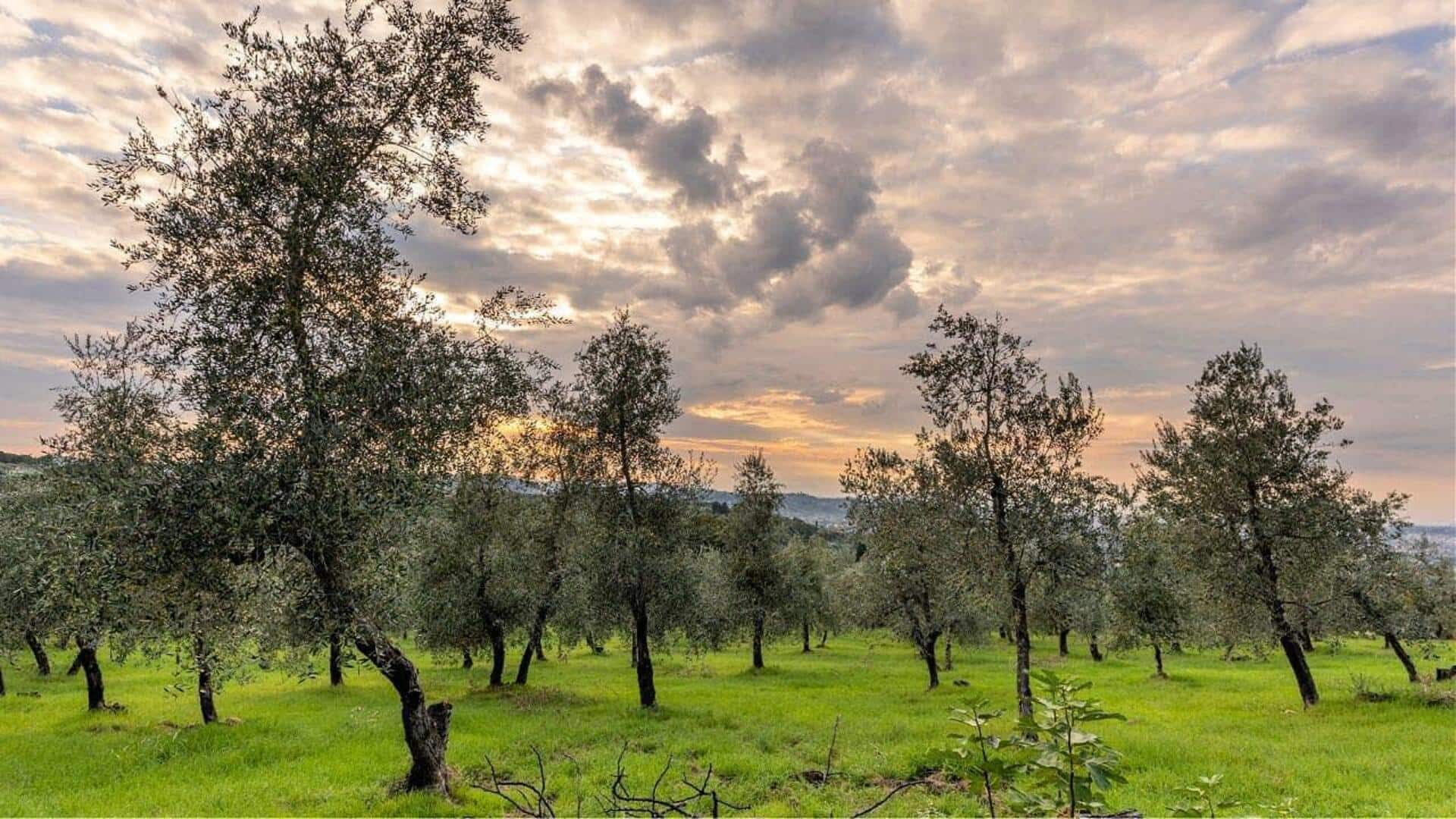
Exploring Africa's ancient olive groves
What's the story
Africa's vast continent, with its varying climates and landscapes, holds a special secret: some of the world's most ancient olive farms reside here. These millennia-old groves serve as living museums, preserving traditional farming techniques and the rich history of olive cultivation. This article explores the importance of these farms, shedding light on their historical significance, the challenges and triumphs of conservation, and their positive impact on local economies.
Origins
The history behind olive farming in Africa
Olive farming in Africa is a millennia-old tradition; in fact, some of the farms in North Africa are more than two thousand years old. These ancient groves have been carefully tended and passed down through generations, along with the traditional farming methods that continue to be used today. The olive tree is a symbol of hope and resilience, thriving in arid conditions where other crops struggle to survive.
Preservation
Conservation efforts for ancient groves
Conservation efforts at these historic sites are a community affair. Organizations work hand-in-hand with local communities to preserve ancient trees and traditional farming methods. They train locals in sustainable practices and encourage organic farming to guarantee the groves' longevity. These initiatives ensure the health and productivity of these ancient treasures for future generations, preserving their historical significance while fostering local economic growth.
Economy
Impact on local economies
Ancient olive farms hold immense economic value, bolstering local economies through agriculture tourism and the production of premium olive oil. Visitors are attracted to the historical beauty and heritage of these landscapes, generating revenue for local communities. Additionally, the distinct taste of oil produced from ancient trees fetches a higher price in the international market, directly benefiting the farmers.
Tourism tips
Visiting ancient olive farms responsibly
When visiting these sacred sites, it's important to do so responsibly. Supporting local businesses by buying products directly from the farms contributes to the community's livelihood. Plus, participating in guided tours provides a richer understanding of the history and importance of these ancient groves, while also ensuring that tourism doesn't harm their preservation.